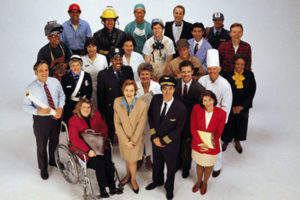
How Well Do You Treat Your Internal Customers?
Regardless of where we work, we all have external customers. In healthcare, they are the patients. In education, they are the students and their parents. In law enforcement, they are the citizens to serve and protect. And for finance and manufacturing, they are patrons or consumers. But did you know that we all have internal customers as well? They are our co-workers and are as vital to the success of our enterprises as the external customers. Without external customers, there would be no employment. And without an efficient internal operation there would be fewer and fewer external customers – and thus no employment. So clearly we need to treat our co-workers just as well as we treat our external customers. But where to start? Experts in customer service often recommend the ARCH approach in serving external customers and the same principles can form the foundation of interaction with our co-workers:
- Acceptance: We embrace our external customers (patrons; students; patients; consumers) regardless of their age, ethnicity, politics or gender. But this is not always the case in the workplace where perceived differences can form the basis of teasing, gossip and even harassment.
Respect: It’s hard to imagine being purposely rude or sarcastic with an external customer. It wouldn’t make sense and would not be tolerated! But sometimes day to day interaction with co-workers leads to an over familiarity that blurs the lines of propriety.
- Concern: When an external customer becomes unhappy with our service or product, we take it seriously and focus on rectifying the situation as quickly and effectively as possible. Many organizations provide advanced training in “service retrieval” in an effort to re-establish trust. Are we as quick to engage in problem-solving when friction develops with a co-worker – or do we “cop an attitude” and allow the unpleasantness to persist and even escalate?

- Helpfulness: When an external customer is struggling, every effort is made to assist or accommodate them. Utilities and banks, for example, routinely reach out with creative refinancing options to “keep the lights on” or avoid foreclosure. But are we as quick to respond to a co-worker or new hire that seems overwhelmed or confused? It’s tempting to adopt an “It’s not my problem” attitude – but what would be the consequence if we displayed this callous attitude toward our external customers? Harrison Barnes of the Employment Research Institute notes that employees often fondly remember co-workers who made an effort to help them and frequently “pay it forward” by assisting other co-workers.
1.800.252.4555 or 1.800.225.2527
View more newsletters at www.theEAP.com
